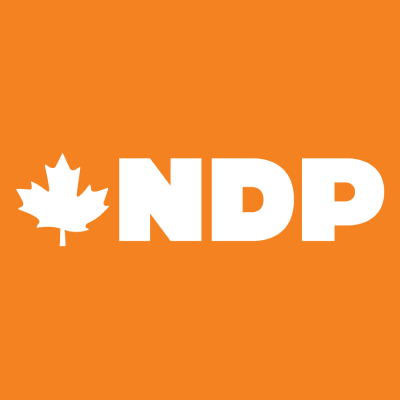Transcript: Canadians that are trying to either buy their own home, rent an affordable home, or in the case of Peggy, trying to stay in an affordable home, are all getting kicked in the teeth. They’re facing these challenges because the market hasn’t been set up for them to compete with families in similar situations with similar incomes. Instead, Canadians wanting to find their way into a home are having to compete with deep-pocketed corporate investors. This is what’s structurally wrong with the Canadian housing market.
There are people out there that’ll tell you different things about that. The Liberals so far have only been willing to take action concerning foreign buyers, but we know they only represent about five percent of the market. Conservatives will argue that it’s government spending, it’s the Bank of Canada, or anything else that diverts attention from the real problem. The genuine issue is the massive corporate profits made by turning what should be a market about people securing a family home into an asset class for profit generation.
This isn’t a phenomenon that occurred by accident. If you delve into the history of real estate investment trusts (REITs), you’ll find that they began their rapid ascent in 1996. Coincidentally, this was right after the Liberals canceled the national housing strategy. The trend has been growing ever since. It’s myopic to focus solely on the last two years and the housing market fluctuations during this exceptional period. The trend of Canadians being pushed out of affordable homes started much earlier than that, and it’s a pattern seen across both Liberal and Conservative governments.
These administrations have been lacking in supply-side solutions. Additionally, they’ve cultivated a tax culture that rewards companies for buying affordable buildings, ousting tenants, and then hiking rents. Through the tax code, if you’re part of a REIT, you’re exempted from paying corporate tax on your profits, as long as you distribute the income to individual investors. Normally, a company would first settle corporate income tax on its earnings and then distribute its dividends from the remaining amount.
Another way the housing market has been undermined is by both Liberal and Conservative governments not renewing operating grants linked to many affordable buildings, be it co-op housing or non-profit housing. Federal operating money made those units more than just affordable – they were rent-geared to income, which is the gold standard for housing. It ensures tenants don’t end up paying an exorbitant portion of their earnings on rent. As these 40 or 50-year mortgages began to expire towards the end of the Harper government’s term, the promise of not renewing these operating grants was made. While the Liberals ran on a commitment to sustain them, they backtracked.
Consequently, buildings across the country that had federal funding, ensuring they could offer affordable rents to tenants, were told by both Conservative and Liberal governments that there would be no funding renewal. This meant they either had to raise the rents or sell their buildings. This situation made them ripe targets for REITs, which had the financial means to outbid non-profit associations experienced in housing.
This is a long-brewing problem, and while the pandemic exacerbated the situation, attributing the crisis solely to pandemic-induced government spending is a mistake. The housing crisis has been building up for ages and has now reached a critical point. We must take actions to stabilize the market and salvage the affordable units we still have. Experts reveal that for every new affordable housing unit we establish in Canada today, we’re losing 15. This rate is unsustainable. The decrease in supply, combined with the detrimental role of REITs and other corporate landlords, is at the crux of the issue.
We need proactive government intervention to address and resolve this problem, ensuring Canadians have access to affordable housing. This is why we’re announcing specific measures today. Jenny has already mentioned imposing a moratorium on REITs and corporate landlords from purchasing affordable buildings. We’ve also discussed establishing a fund so that non-profit housing experts can acquire and manage these buildings appropriately. Another crucial step is eliminating the preferential tax treatment for REITs, which only makes them a more enticing investment option, drawing more capital into a system that’s undermining our housing market.
We shouldn’t be incentivizing investors to exploit a mechanism that makes housing less accessible for Canadians. Our package of solutions aims to conserve affordable units, create more of them, and stop rewarding major investors who profit by forcing Canadians out of homes they can afford, leaving them to fend for themselves.
We need more dense, transit oriented, non-market housing:
https://www.youtube.com/watch?v=41VJudBdYXY&t=2s&ab_channel=BloombergOriginals
https://www.youtube.com/watch?v=sKudSeqHSJk&ab_channel=AboutHere
Vienna, the capital of “affordability” and MULTI-YEAR WAITLISTS FOR ANYTHING BECAUSE THERE AREN’T ENOUGH FUCKING UNITS. You can’t even get onto the list for a unit until you live in Vienna for two years. You can’t make too much money either, 80k Euros total for a couple, but you can’t afford to move to Vienna for the 2 years to even get on the waitlist unless you make more than the amount to get accepted onto the waitlist.
And don’t even think about trying to move once you’ve got a unit either. That isn’t happening.
Goddamn do I hate when people try to use Vienna as an example of things working well.
Meanwhile, the government is allowing The Montreal Shuffle
Let’s say rent is $1000/month for existing tenants:
- Landlords kick-out existing tenants (Renoviction, etc.)
- Landlords rents out the apartments/houses at $4000/month to AirBnB investors. (They don’t care it’s 4x the market rates, they’ll make that back in a week on AirBnB!)
- AirBnB investors list the apartments/houses on AirBnB and make a fortune while the original tenants live in tents!
- Landlords go to the bank and get a mortgage on the same properties now valued 4x higher (b/c they’re making 4x more rent) and can buy more properties.
- Rinse and repeat.
Vacancy control is a policy that would fix this, and has been proposed by the Ontario NDP! It would tie rents to units instead of tenants, which would mean landlords can’t raise rents beyond the rent control guideline when putting a unit back on the market. This removes the incentive for landlords to renovict tenants.
This strikes me as a convenient scapegoat more than anything. None of the major parties dares admit that more affordable housing would require home prices to drop
So let’s blame the scary REIT bogeyman!
We need a massive, WW2-style investment in home construction, and we need housing prices to go down. That’s something that the NDP believes in more than any other party. Take a look at this response in the last leader’s debate, where Singh actually pushes back on the notion that housing should be an investment and prices should keep going up. You think Poilievre or Trudeau are going to say anything like that?
The fact is though, that REITs are buying up massive amounts of property, have perverse tax incentives, and have a lot of political influence through their accumulation of capital over the past decades.
It’s definitely corporations. It has been for a long time. I knew that corporations were pushing up housing prices for at least 10 years.
It can’t be corporations.
66-68% of Residential properties in Canada are owned by the family living in them. Another 15-20% are dedicated rental apartment buildings which have to be owned by a corporation in order to be built in the first place.
That leaves 10-15% of the whole market to be owned by “Corporations” except most of that remaining amount is just regular people who own two or three homes either for themselves(summer cabin, etc.) or to rent out as small time landlords.
I’d bet you money that corporations own less than 5% of all single family homes in Canada.
Cool. So when do you guys stop propping up the Trudeau gov’t, and start making them do something.
The fact is, the NDP and conservatives lost the last election. The NDP won 25 seats. And polling right now shows that the conservatives are going to win the next election if it were called tomorrow.
In the last parliament, from 2019-2021, there was also a Liberal minority, with deal between any party. But the Liberals simply got what they wanted because they could count on the support of either the Bloc (when shooting down legislation over jurisdiction), the NDP (for childcare), or the Conservatives (when legislating workers back to work), and have a working majority.
So, the NDP has three options:
- Have little influence and get played like they did from 2019-2021
- Bring down the government, with a high chance of a conservative majority: which would mean tax cuts for the rich, cuts to healthcare, and giant cash handouts to the private-sector for housing that will enrich developers and effectively scam the taxpayer - I mean, just look at Ford’s absolutely transparent greenbelt corruption
- Use their power to broker a deal with the Liberals, guaranteeing them stability in exchange for serious concessions on healthcare (dental care and pharmacare), worker’s rights (paid sick days, anti-scab legislation), climate (phasing out fossil fuel subsidies), childcare (ensuring that care is done by public and non-profit instead of private providers), and housing (a few extra billion dollars, which is wildly insufficient IMO)
Option 3 is probably the best deal. Would an NDP government do more to tackle the housing crisis? Yes, but in the current parliament, with only 25 seats, you get what you can get. I think the NDP should push for more, be more aggressive, and have a more credible threat of pulling the plug in order to extract more from the Liberals, and for that reason, I’m not super excited about the way things are going. I’ll certainly push for more at the party convention.
However, let’s look at the bigger picture. What policy goals have the other parties (including the conservatives) actually accomplished in Parliament over the past decade? They’ve made a bunch of noise, but gotten pretty much nothing done.




